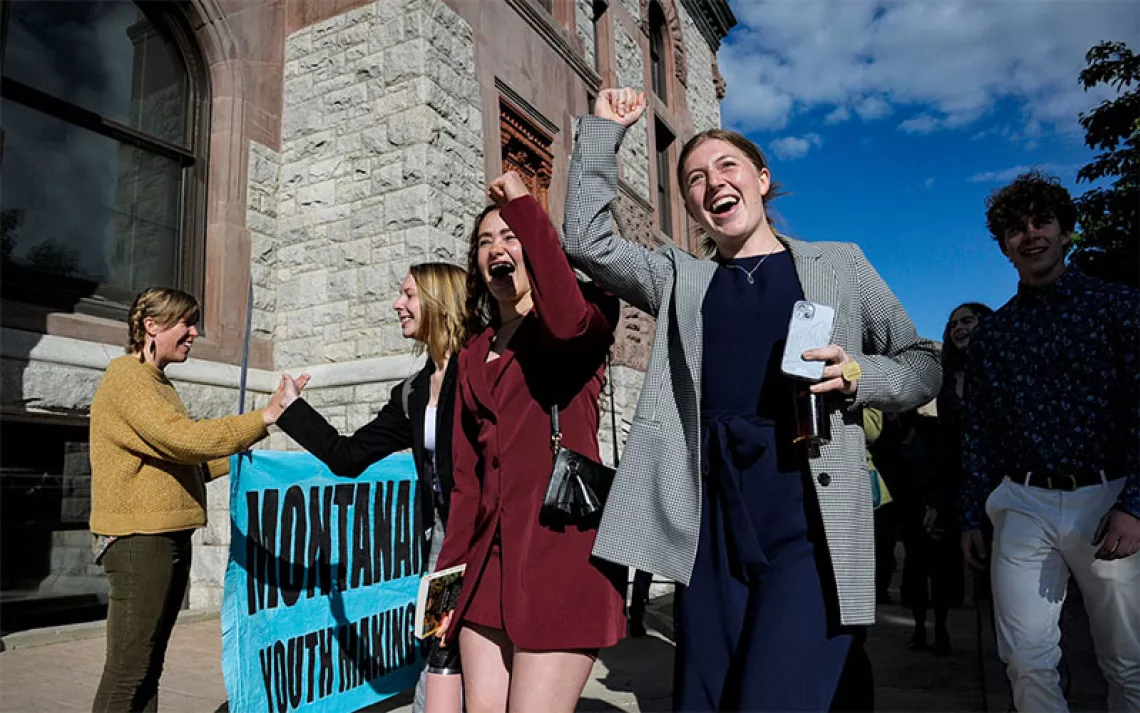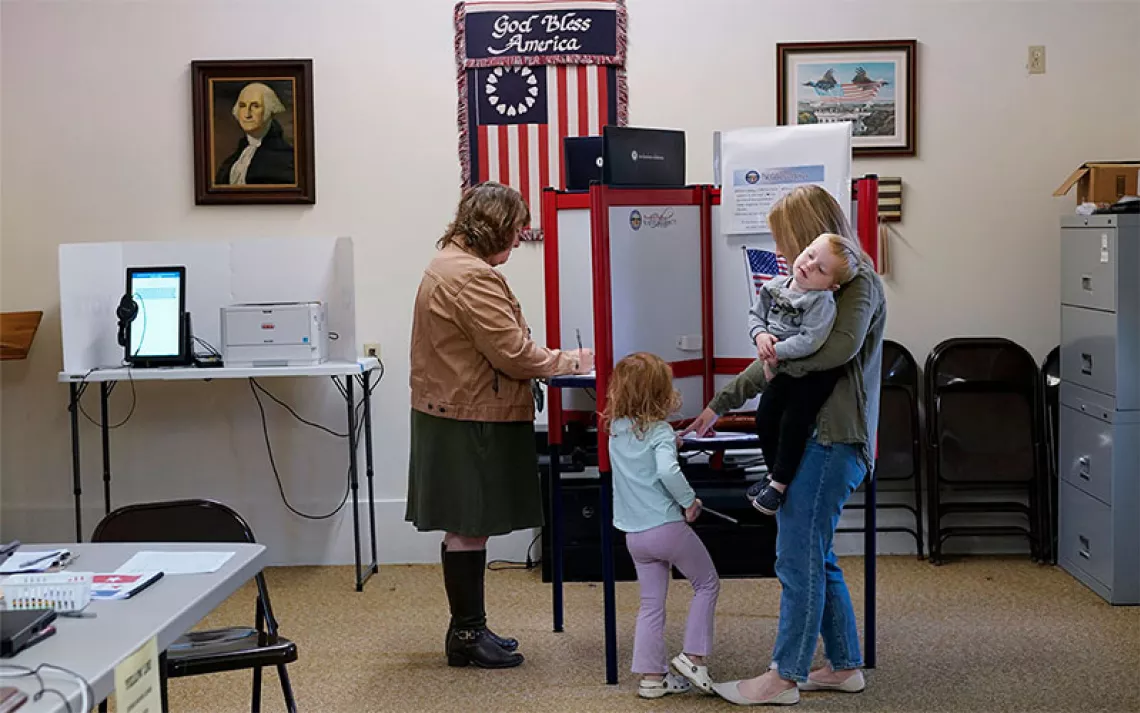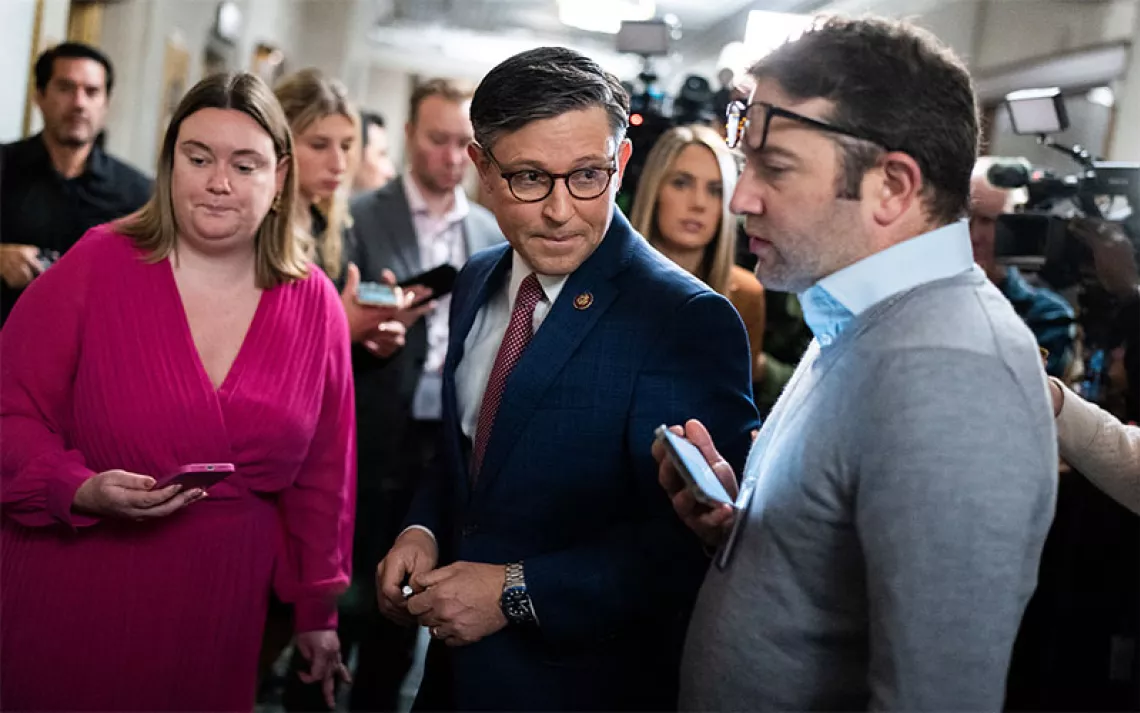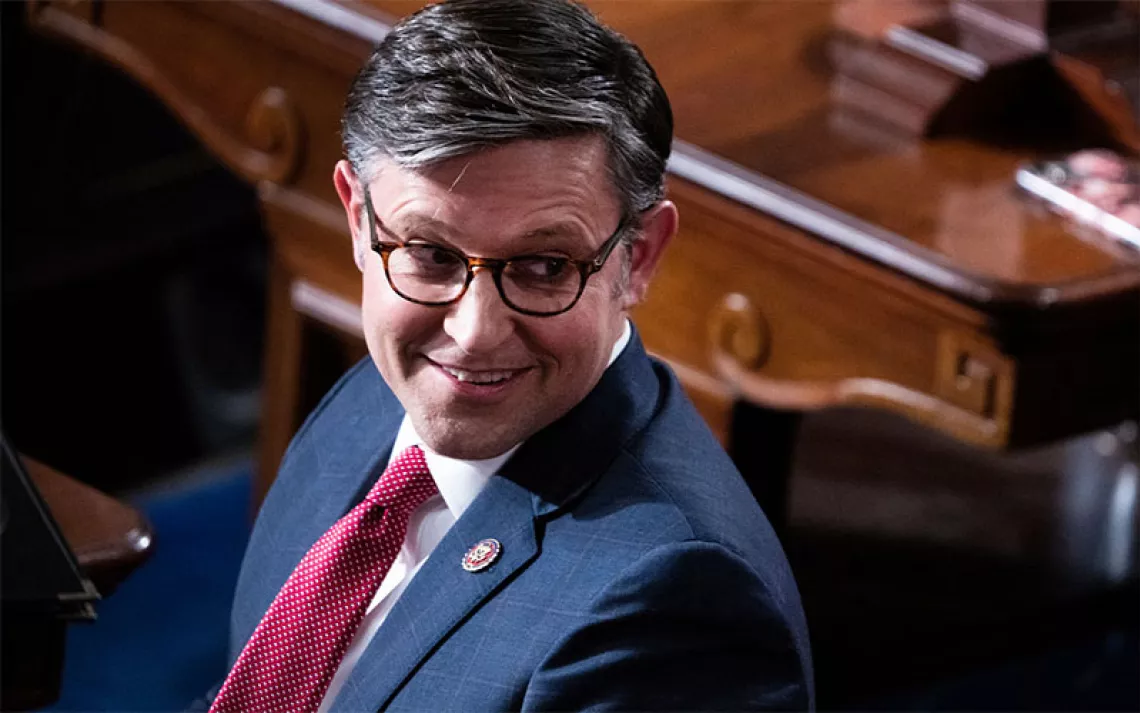College Republicans Want Their Party to Confront Climate Change
Young conservatives are unhappy with GOP status quo
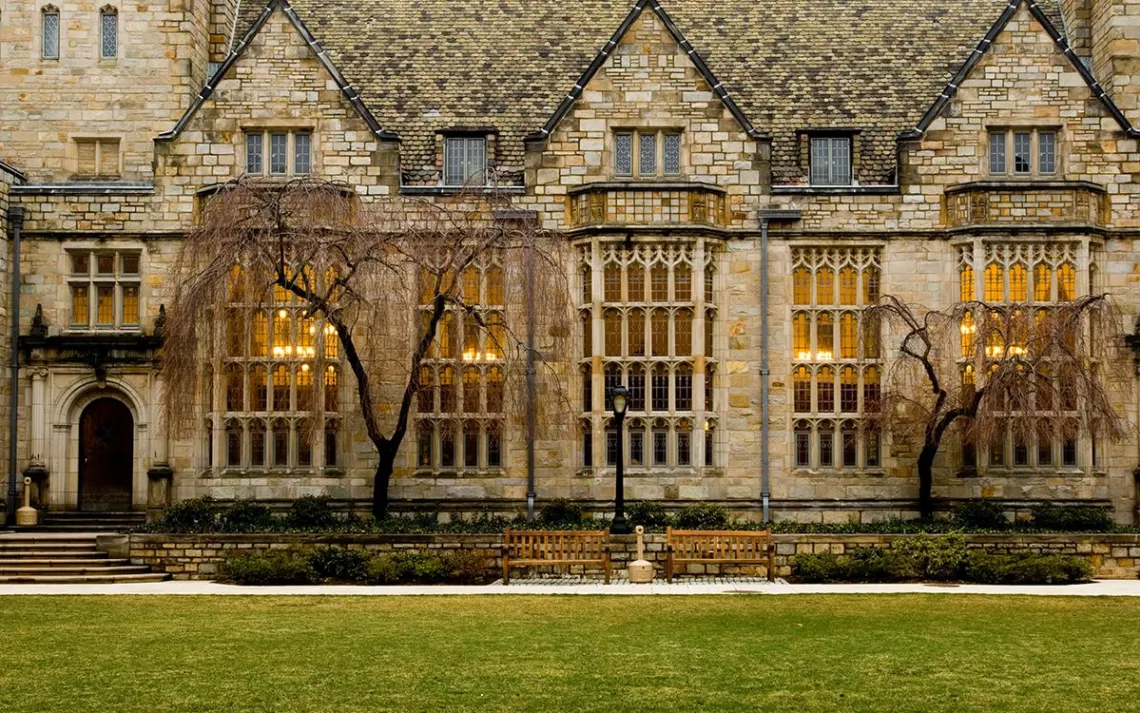
Photo by Tashka/Istock
Kiera O’Brien grew up in Ketchikan, once Alaska’s first major trading post on the way up from the Lower 48. Her parents both work at Ketchikan High School, where her father teaches biology. In 2016, O’Brien left Alaska for college. It was there, at Harvard, that she first came to see herself consciously as a Republican, at odds with the liberal mainstream of the campus. She also came to see herself as an environmentalist.
“I wasn’t used to the pollution, even just the noise and smell of cars,” she recalls.
In August 2017, O’Brien, who was serving on the board of the Harvard Republican Club, met Alexander Posner. Posner, a Yale student and self-described independent, had recently taken an interest in, and then subsequently an internship with, the Climate Leadership Council, an international policy institute promoting a plan for carbon taxes with dividends redistributed to individuals, originally coauthored by former Republican secretaries of state James Baker and George Shultz. Hoping to build grassroots support for the Baker-Shultz plan, Posner began laying the groundwork for a campus coalition called Students for Carbon Dividends (S4CD).
In February 2018, Posner invited O’Brien to join the leadership team.
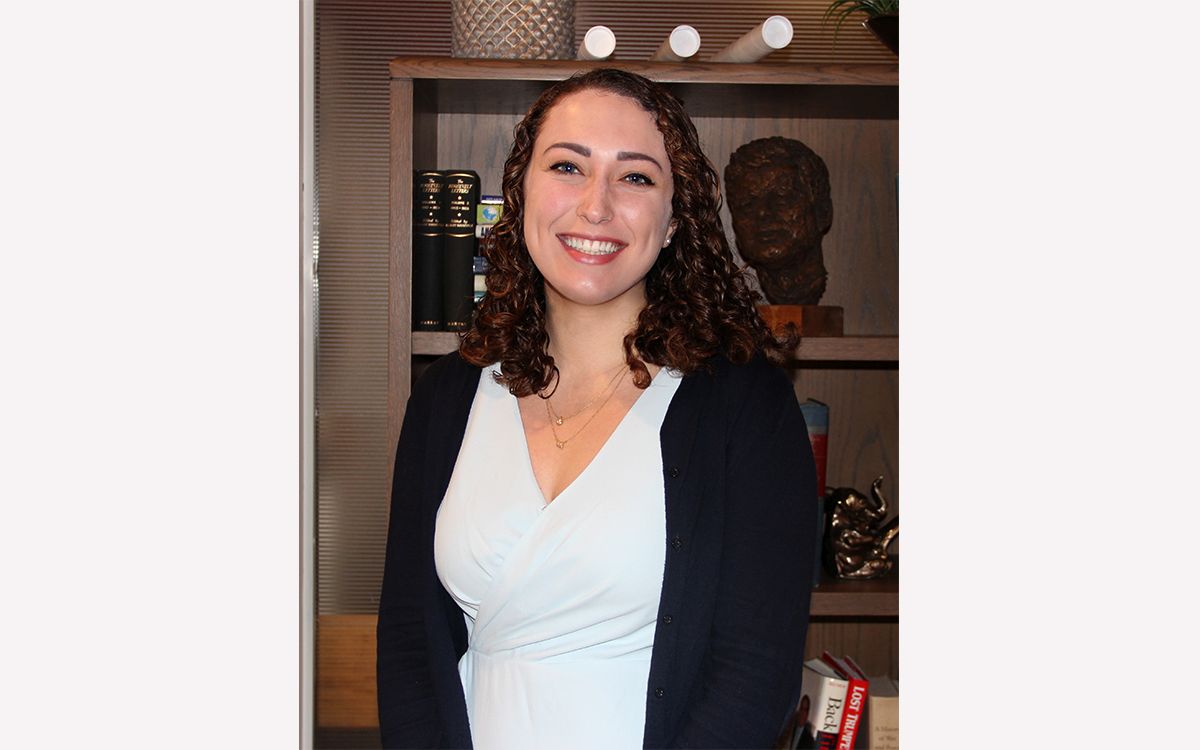
Kiera O’Brien, vice president of S4CD | Photo by Harvard Institute of Politics Communications team
S4CD is home to a young, growing faction of the Republican Party that's increasingly concerned with climate change (at present, 19 college Republican groups have signed on to the coalition). “It’s a generational issue,” O’Brien says. Surveys seem to bear this notion out: The Pew Research Center recently reported that 36 percent of millennial Republicans (born between 1981 and 1996) believe that the earth is warming mostly due to human activity, while only half that percentage of boomer Republicans think the same. And in contrast to only 27 percent of older Republicans, 47 percent of young Republicans say the government is doing too little to reduce the effects of climate change.
A common frustration among young Republicans who recognize that the climate is changing because of human influence is the absence of a productive conservative conversation about the problem.
“It hasn’t been a big-enough priority for really anyone in the national [Republican] political movement, because it seems like such a one-sided issue. So there’s not much debate about it; there’s not much conversation about it,” says Benjamin Backer, president and founder of the American Conservation Coalition and a University of Washington student.
“And that relates to all environmental issues: conservation, climate, clean energy.”
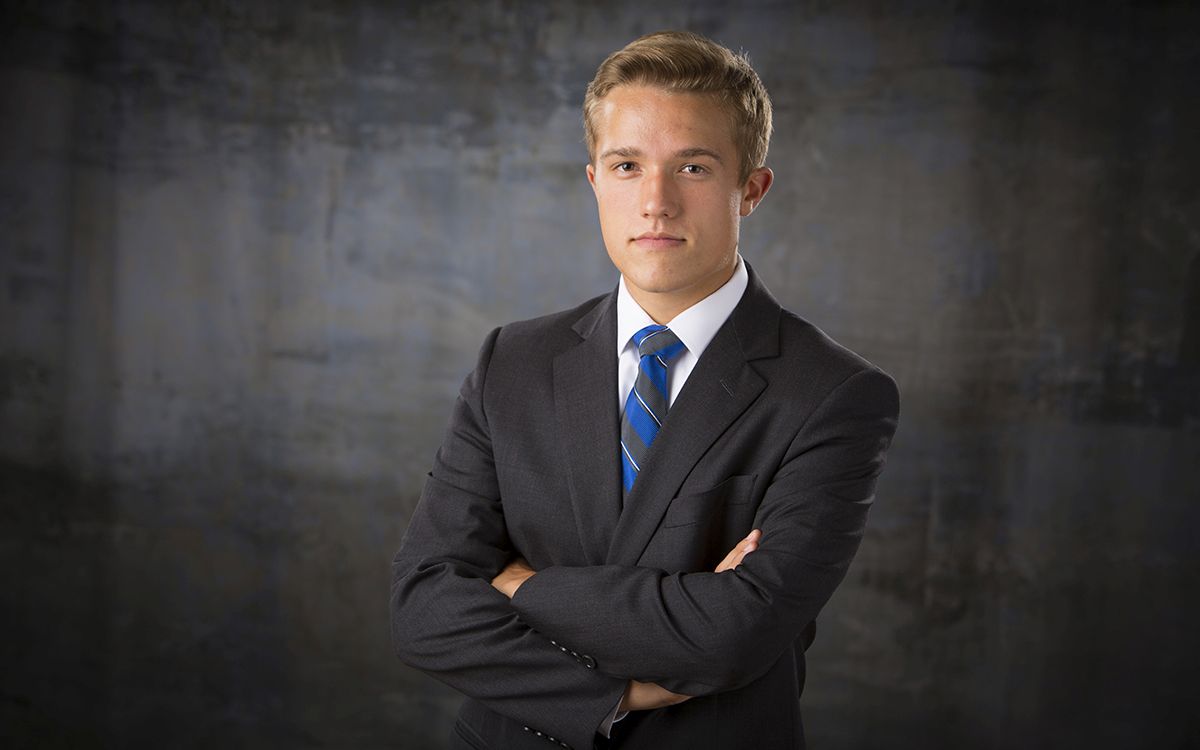
Benjamin Backer, president of ACC | Photo by Brad Konopa
Backer is from Wisconsin, where he grew up spending time in the outdoors and, by his early teen years, defending Scott Walker in debates with his teachers about teacher-union strikes. In 2014, at 16, Backer was invited to speak before the Conservative Political Action Conference.
Early on in college, when political awareness is first budding for many students, Backer was moving on to the second phase of his career. In all his time involved with the Republican Party, he had found the lack of focus on environmental issues, especially climate change, aggravating. And so in his first year at the University of Washington, he founded the American Conservation Coalition (ACC), a 501c4 organization, “dedicated to educating and empowering conservatives to re-engage on environmental conversations.”
Since its June 2017 launch, the group has grown fast. On January 22, ACC released a letter signed by 41 state College Republican Federation chairpeople, declaring “that it is time to address clean energy from a conservative, free-market perspective.” Along with providing a gathering place and a political voice for young conservatives concerned about climate, ACC’s role is, in Baker's eyes, at least in part attempting to re-engage older Republicans who have been alienated from discussions about the environment. One of ACC’s blog posts recommends broaching the need for environmental action to an unconvinced audience around the kitchen table by mentioning declining bee populations, rather than by describing climate-related doomsday scenarios.
“Conservation is easy,” Backer says, if not in practice than at least in terms of public opinion. Many conservatives say they support conservation; a 2012 survey by the Nature Conservancy found that 79 percent of Republicans believe that conserving our country's natural resources, land, air, and water is patriotic. Many, like Backer, trace their party’s history back to Theodore Roosevelt and the National Park Service. As O’Brien and Ben Zollinger, president of the Yale College Republicans, cowrote in a recent CNBC op-ed, “after all, what’s more conservative than conservation?”
But conservation and climate action are different pursuits, as those involved with S4CD and ACC are well aware. The latter is much more difficult to comprehend, let alone execute, than the former.
“Don’t get me wrong, I love our national parks,” O’Brien says. “But there are some things that you can’t regulate.”
O’Brien sees government intervention not as unethical or even as overreach, but rather as fundamentally impotent in the face of such a dire situation as climate change. She envisions a solution in the form of capital and innovation mobilized from the private sector.
“As a Republican, I like to see government getting out of the way of the people, allowing businesses to flourish and proceed with the development of technologies, rather than dictating to them what should be done,” O’Brien says.
Backer, too, is optimistic that the market will present solutions. “Today, with Tesla, Nissan, and nearly every automobile manufacturer creating electric cars through the demand of the free market, transportation is on its way to driving down emissions at a substantial level,” he wrote in a recent op-ed for The Washington Times.
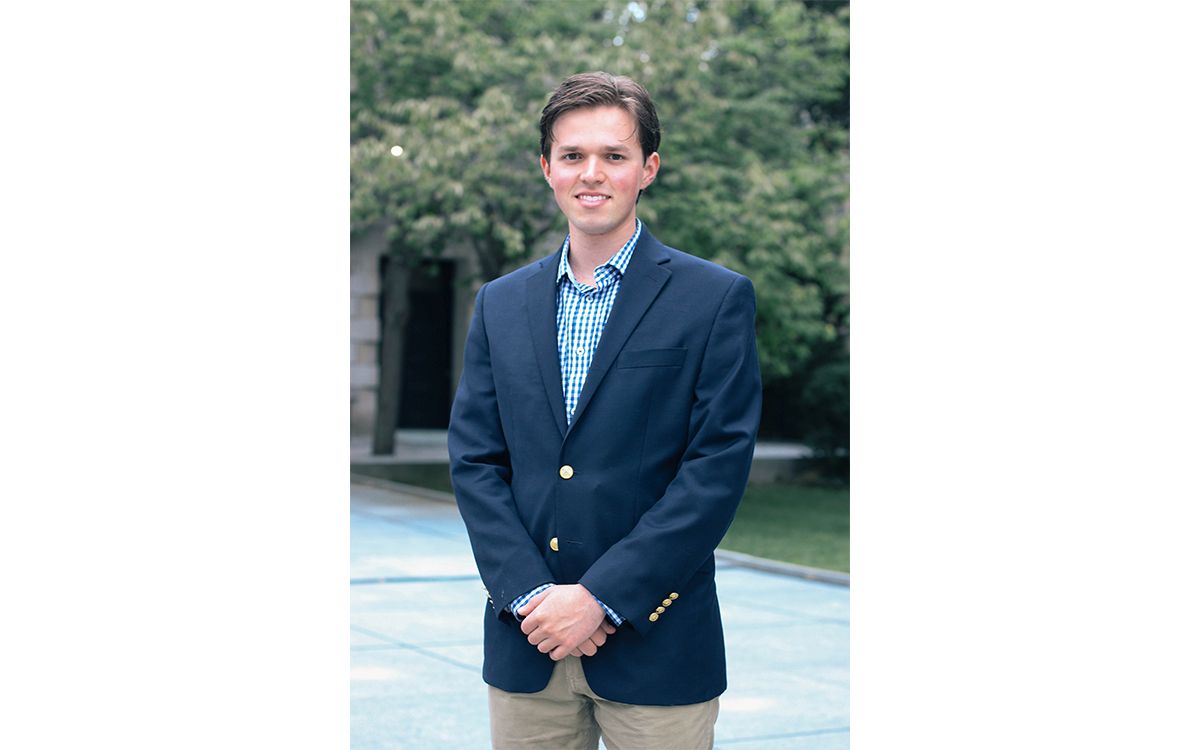
Alexander Posner, president of S4CD | Photo by The Politic (Yale)
Posner’s S4CD displays a more tempered optimism. Posner acknowledges that the group could face pushback from either side of the aisle on the Baker-Shultz carbon dividend plan. Among conservatives, he said, the “T word” (taxes) can be a turnoff. Among liberals, the inclusion of industrial deregulations could be unpopular.
At present, though, the Baker-Shultz plan has garnered positive attention. It was recently endorsed by all living former chairs of the Federal Reserve, 27 nobel laureate economists, and 15 former chairs of the Council of Economic Advisors. But Posner understands that it will take more than expert opinion to muster broad political support for the policy. He likens the problem of changing public opinion to stage magic, something he knows more than a little about; Posner traveled the world as a teen with an organization called Magicians Without Borders (“Yes, it’s a real thing,” he says), performing and teaching illusions.
“If we can crack the political knot and engineer a bipartisan solution on climate,” Posner says, “I think that will be the greatest magic trick to date.”
 The Magazine of The Sierra Club
The Magazine of The Sierra Club
